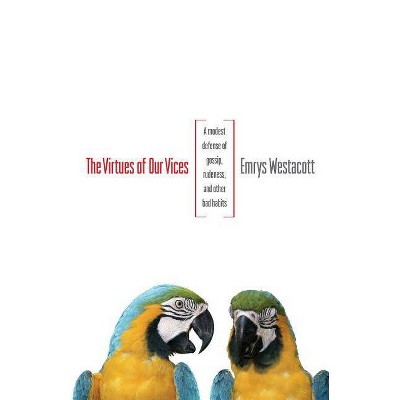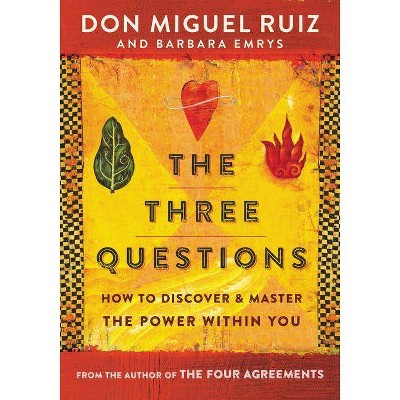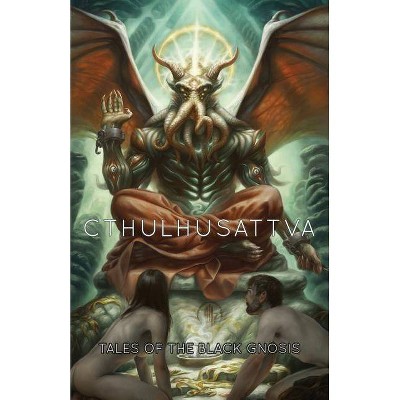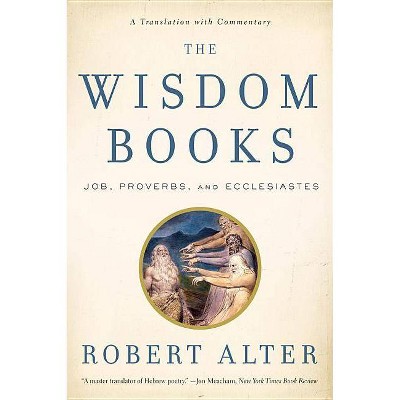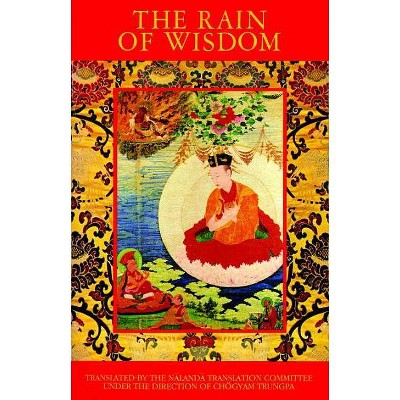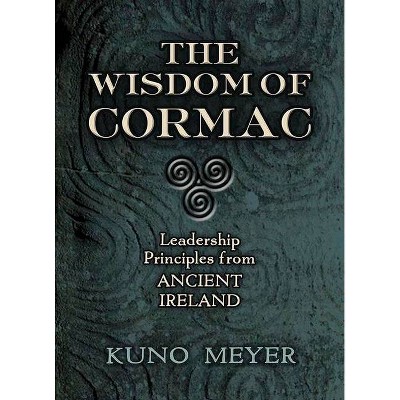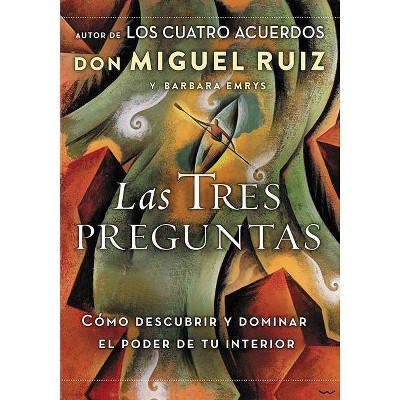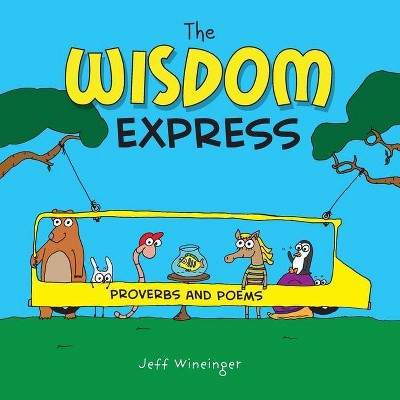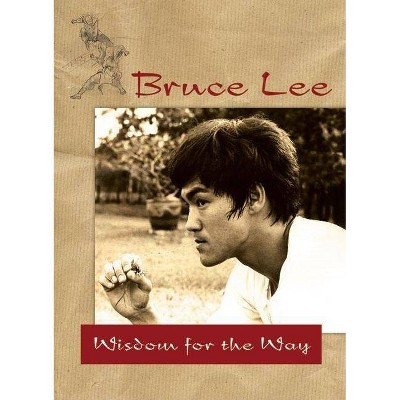The Wisdom of Frugality - by Emrys Westacott (Paperback)
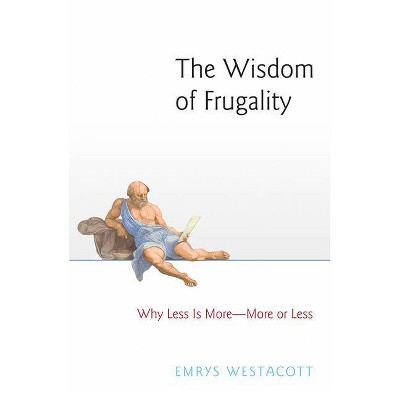
Similar Products
Products of same category from the store
AllProduct info
<p/><br></br><p><b> Book Synopsis </b></p></br></br><p><b>Why philosophers have advocated simple living for 2,500 years--and why we ignore them at our peril</b> <p/>From Socrates to Thoreau, most philosophers, moralists, and religious leaders have seen frugality as a virtue and have associated simple living with wisdom, integrity, and happiness. But why? And are they right? Is a taste for luxury fundamentally misguided? If one has the means to be a spendthrift, is it foolish or reprehensible to be extravagant? <p/>In this book<i>, </i>Emrys Westacott examines why, for more than two millennia, so many philosophers and people with a reputation for wisdom have been advocating frugality and simple living as the key to the good life. He also looks at why most people have ignored them, but argues that, in a world facing environmental crisis, it may finally be time to listen to the advocates of a simpler way of life. <p/><i>The Wisdom of Frugality </i>explores what simplicity means, why it's supposed to make us better and happier, and why, despite its benefits, it has always been such a hard sell. The book looks not only at the arguments in favor of living frugally and simply, but also at the case that can be made for luxury and extravagance, including the idea that modern economies require lots of getting and spending. <p/>A philosophically informed reflection rather than a polemic, <i>The Wisdom of Frugality </i>ultimately argues that we will be better off--as individuals and as a society--if we move away from the materialistic individualism that currently rules.</p><p/><br></br><p><b> From the Back Cover </b></p></br></br><p>"In this book, Emrys Westacott delves into the conflict between the virtues of the simple life and the apparently irresistible economic imperative to grow. Economic growth has brought us longer, healthier, and more comfortable and varied lives. But Westacott makes the case that, given our present situation, the appeal of frugality is not mere nostalgia, but rather the route to a more meaningful way of life."<b>--Diane Coyle, author of <i>The Economics of Enough</i></b></p><p>"This profoundly thoughtful philosophical examination of frugality provides a thorough investigation of both simple and luxurious living. Emrys Westacott gives philosophical, psychological, religious, and economic arguments for and against frugality, and he has convinced me that the case for it is more complicated and more interesting than I had thought."<b>--William B. Irvine, author of <i>A Guide to the Good Life: The Ancient Art of Stoic Joy</i></b></p><p>"What I especially like about [<i>The Wisdom of Frugality</i>] is the path Westacott lays out. He's teaching and preaching at the same time. He's an advocate for simple living but his research explores both the pros and cons of frugality. He gets you thinking about so many important questions."<b>--Michelle Singletary, <i>Washington Post</i></b></p><p/><br></br><p><b> Review Quotes </b></p></br></br><br>[<i>The Wisdom of Frugality</i> is] not primarily an attempt to retrieve the ancient philosophical art of living (and writing) simply. It's an attempt to evaluate that tradition, and its contemporary echoes and amendments, at a time when life has arguably never been so complicated, distracted, and encumbered. . . . [Westacott] articulates and examines every argument you can think of, and numerous others that never would have occurred to you, for a frugal, materially minimal life. And in careful counterpoint throughout this book, he sets forth just about every conceivable objection to seeking such a life.<b>---Lawrence Klepp, <i>Weekly Standard</i></b><br><br>[A] rewarding examination of our love-hate relationship with wealth and status. . . . In his calm, measured and wise analysis of the virtues and vices of simplicity, Westacott asks why, if almost every sage in history has praised frugal simplicity, we haven't all embraced it.<b>---Julian Baggini, <i>Financial Times</i></b><br><br>[T]he book is an interesting and valuable read for all who are considering quality of life issues not merely for themselves but for everyone living on planet earth.<b>---Maura Pilotti, <i>Metapsychology</i></b><br><br>Human society is all about meeting the 'needs' of the populace--but which demands and aspirations are legitimate? It's an important question. . . . [H]ere is a sprightly and authoritative romp through the history of the philosophical advice on the issues.<b>---Martin Cohen, <i>Times Higher Education</i></b><br><br>The path to sanity is most likely to lie not in redistributionist programs of dubious merit, but in the course that Westacott models for the better part of <i>The Wisdom of Frugality</i>: a thoughtful willingness to resist the siren calls of the shopping malls and online bazaars for the sake of our mental health, and that of the world in which live.<b>---James Williams, <i>PopMatters</i></b><br><br>Westacott. . . is erudite and provocative. . . . In an age where much that passes for thinking is starved of its necessary complexity, [he] has created a refreshingly multi-dimensional book.<b>---Stephanie Dowrick, <i>Sydney Morning Herald</i></b><br><br>[<i>The Wisdom of Frugality</i>] brings a rigorous treatment of an important question within the reach of an informed reader who is not necessarily a philosopher per se.-- "Choice"<br><br>A pleasant intellectual tour.<b>---Joe Pinsker, <i>The Atlantic</i></b><br><br>Upon closing the pages of this very enjoyable book, I felt only pleasure and enlightenment from a thoughtful and flowing examination of an idea that's always snared our imaginations.<b>---NJ McGarrigle, <i>The Irish Times</i></b><br><br>Westacott's philosophically informed polemic argues that if we rise above our material individualism, we will be better off, both as a society and as an individual.<b>---Wan Lixin, <i>Shanghai Daily</i></b><br><p/><br></br><p><b> About the Author </b></p></br></br><b>Emrys Westacott</b> is professor of philosophy at Alfred University in New York.
Price History
Price Archive shows prices from various stores, lets you see history and find the cheapest. There is no actual sale on the website. For all support, inquiry and suggestion messagescommunication@pricearchive.us
